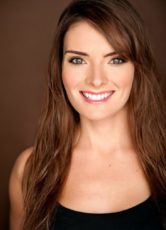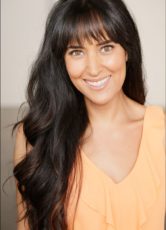
Mark Rylance has given consistently powerful performances on both stage and screen for decades. In turn, the “Bridge of Spies” actor has been awarded with an Oscar, three Tonys, and two Laurence Olivier Awards. When speaking about the craft of acting, the esteemed performer often expresses himself metaphorically. Here are a few memorable examples of Rylance’s creative descriptions of acting concepts:
Rehearsals are like farming
Rylance prefers not to talk too much about how to approach a scene because he finds the expectation of “how it should be” is limiting and repressive. He explains, “Actually, for me, I find that playing, getting up and playing and finding what comes spontaneously when I’m with the other actor and really speaking with them, that’s a more fruitful way for me to find out what to do. I like to just get up and play even when I don’t know what I’m doing and find out by making mistakes.”
He likens this exploratory process to farming: “In some ways [rehearsals are] like preparing the ground for planting a bunch of vegetables. You’ve just got to turn it and make sure it’s fertilized and plant things at the right depth, make sure it’s watered. And then the things you planted come up. And a lot of other things you didn’t plant—sometimes weeds—come up as well! So the exercise is really just turning them around and trying to keep them happy with the questions rather than leaping to answers. And hopefully those questions remain into the performance with you.”
Theater should be like a Miles Davis concert
In the 1980s, Rylance was able to attend a Miles Davis concert, and the legendary jazz musician made quite an impact on the young actor, even informing his approach to his craft. Rylance shared:
“Miles Davis played the whole concert like this [with his back facing the audience]. Occasionally, he may have [turned to face the audience briefly]. And his other musicians were [toward the back of the stage]. And I thought, ‘That’s very strange, is he very shy?’ I mean, he wasn’t out there kind of selling it and playing his thing. And then I realized he wasn’t presenting his music. He was inviting us to [experience it] like a rehearsal. They were going to create music. What they like to do is make music, and we were just able to come and be there. And they might make mistakes or whatever. But how much more special to be just in a room with Miles Davis and his friends making music rather than them presenting the best bits of what they think should be presented? And so I thought that’s how theater should be, too. It should be creative!”
Theater acting should be played like a tennis match
“The BFG” actor firmly believes theater acting should be an alive and spontaneous experience. In this way, the actor’s work is similar to an athlete who trains. “I’m very keen that [characters] are always speaking to try to affect the other person, to try to change the world, either by affecting what the other person is doing or wants them to do, or by releasing something that’s pent up in themselves which needs to be expressed,” he states. “But they’re never saying anything to illuminate you about—‘Oh! That’s a big theme’ or ‘That’s what the play is about.’ It’s a play. It’s a play, and it should be played at some level like a sport is played.”
Rylance then gives a comical analogy: “If you went to see the Wimbledon final, and they had practiced for weeks and weeks and weeks so that when one of them hits it over there, they practice for a long time that the other player goes to [one side of the court] by mistake and then goes, ‘Oh! It’s coming this [other] way!’ And then hits it back and dives and does the roll. And if they practice for years and years, they might be really good, and it might at times be convincing that it was a real match. But why bother? Why not just go out and play a real match and have the excitement of not knowing who’s going to win?”
Rylance concludes, “I feel that if we, as actors, play that way—play innocently in a childlike fashion, not knowing how the story is going to come out, not knowing how the scene is going to end—then we actually will convince you, even those of you who’ve seen the play many times and have favorites performances of it. … And [actors are] allowed to step wherever they want; they move in different places” allowing the performance to be fresh every night. “As long as they’re connected with what they need as characters and they’re trying to get what they need, then it will all come out right in my mind,” he insists.
Keep your road curvy
Rylance hopes people find a way to stay connected to the most important aspects of life. “The need to encounter major things that happen in your life—the births and deaths and loves and griefs and joys. These things I think the young people are always very healthfully searching for before they get swallowed up. But [there’s] pressure on them to be swallowed up quickly and become useful and productive,” he cautions. “I think if you’re in contact with the history and the old mythological stories, they’re not productive, they’re not functional, they’re not going to get you a job at Walgreens. But they keep the road curvy and spirally rather than trying to make the road as straight as possible from A to B. That’s a quick journey, but it’s a terribly boring journey, and you will be very sad when you die.”




